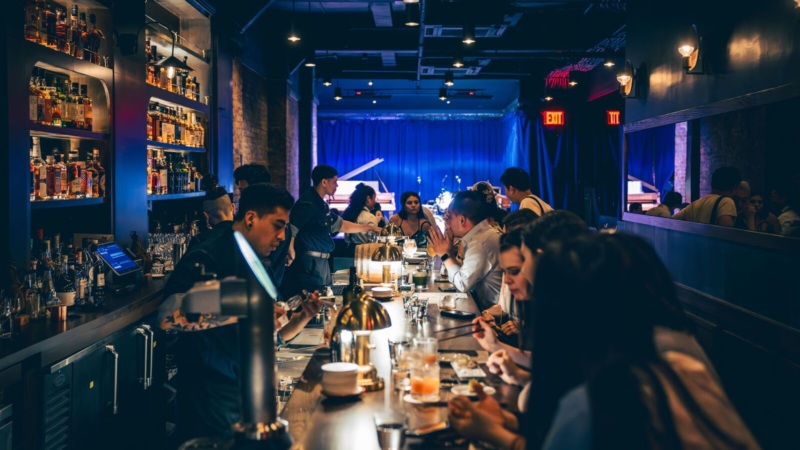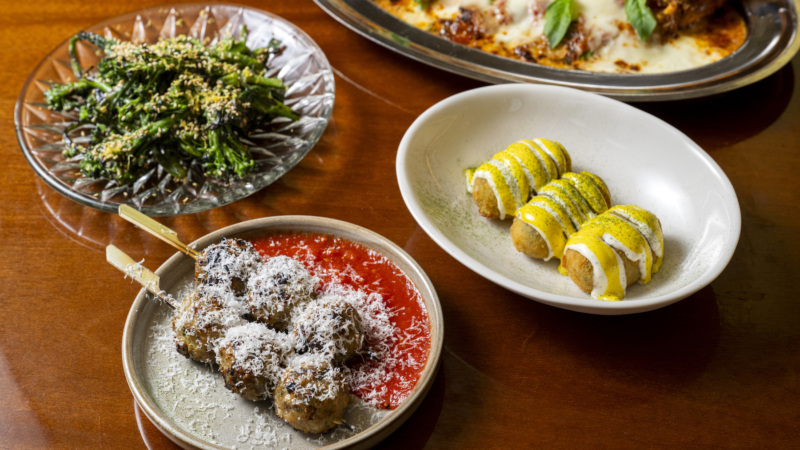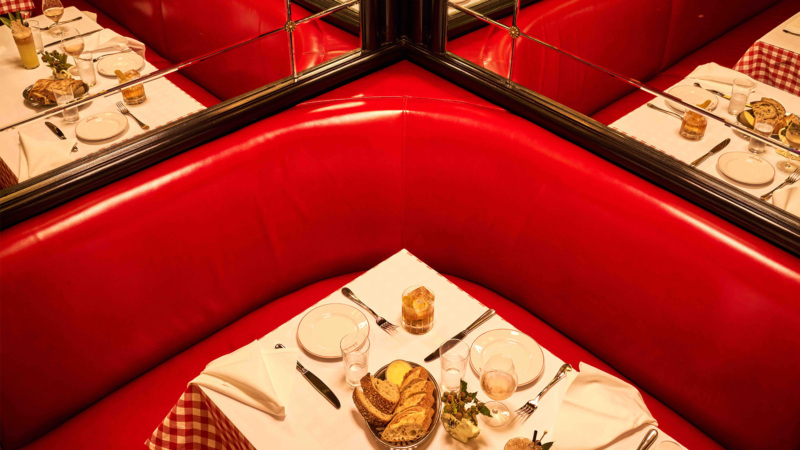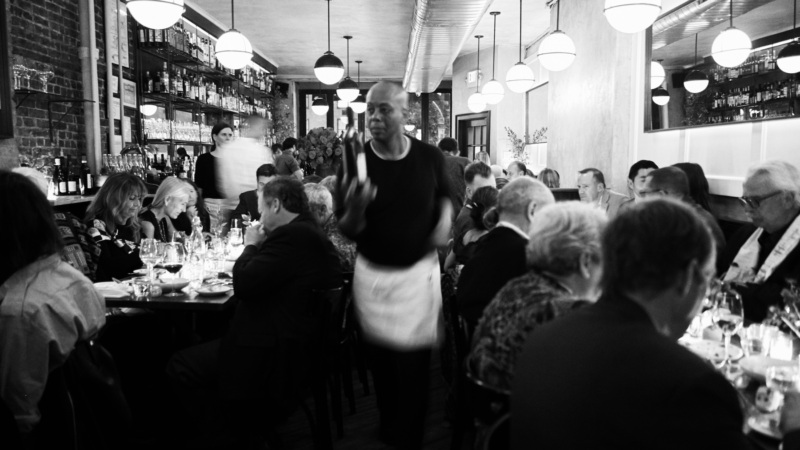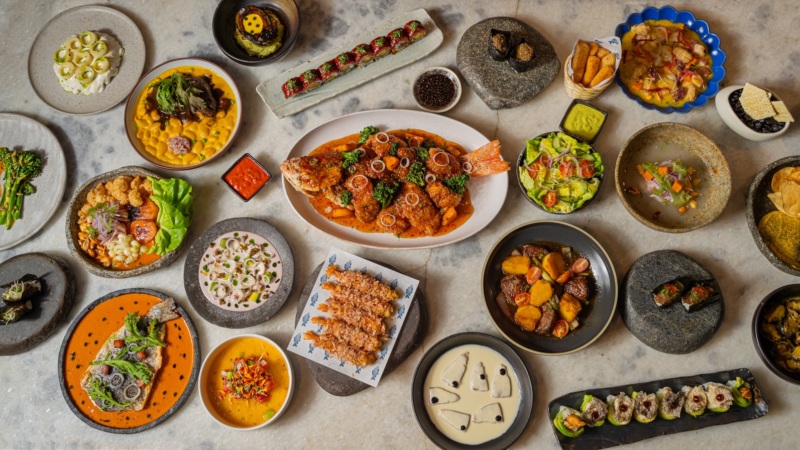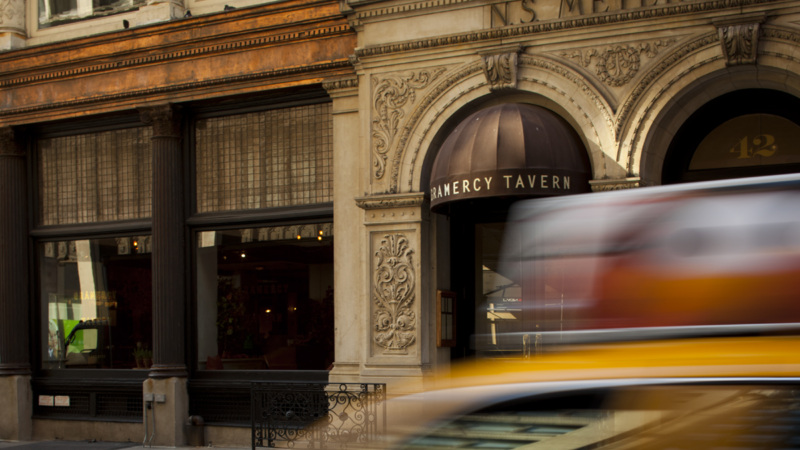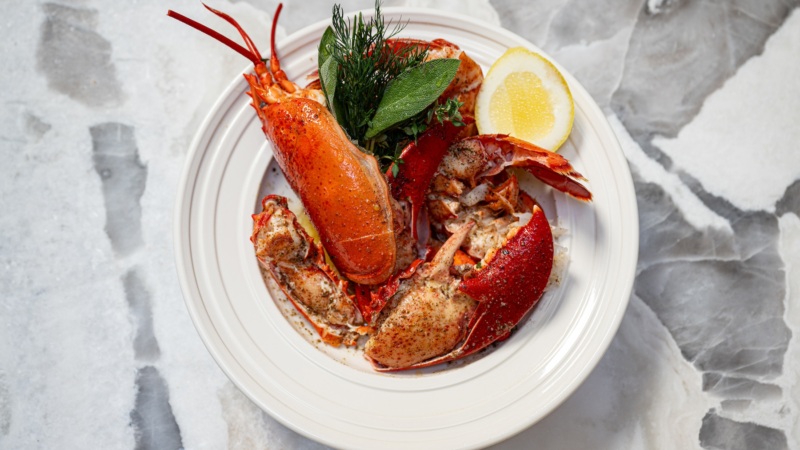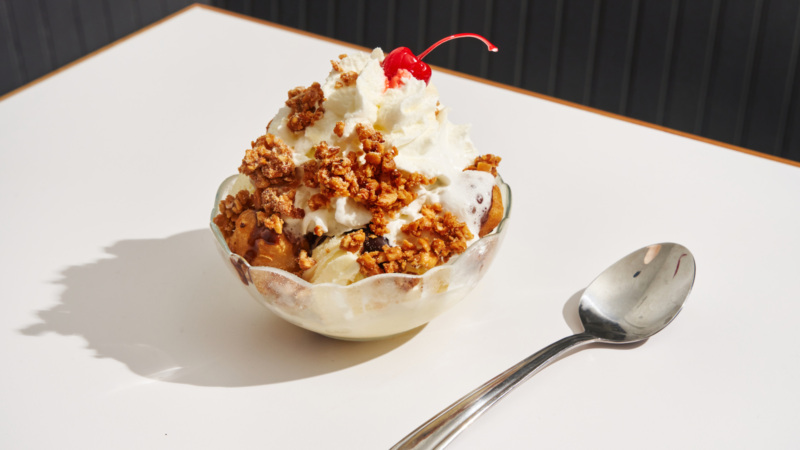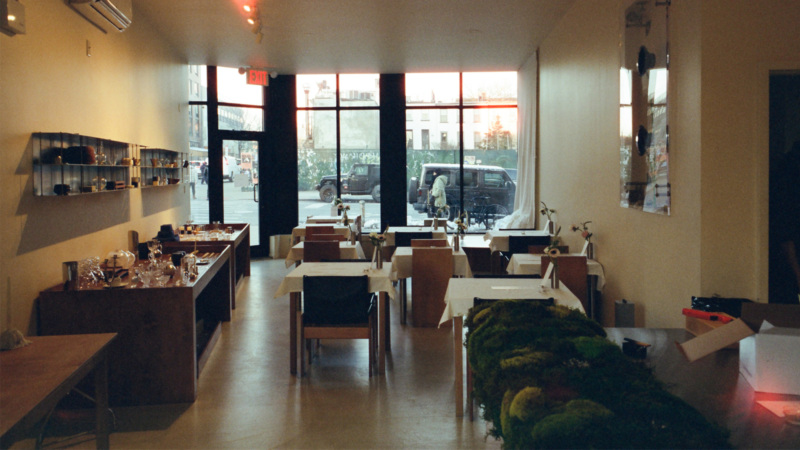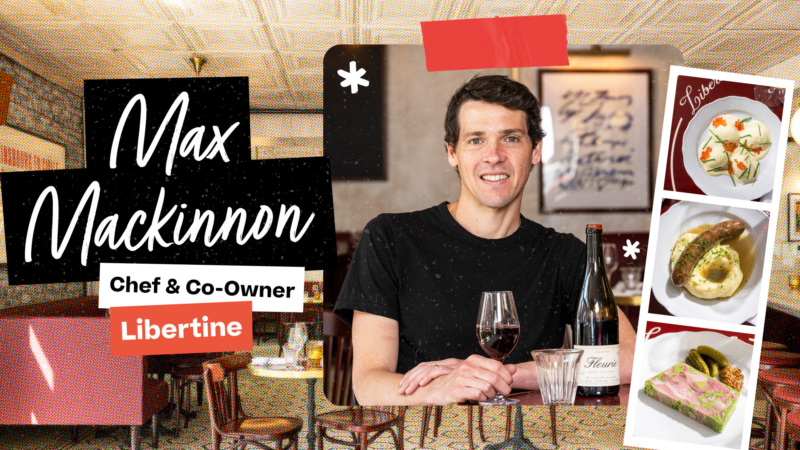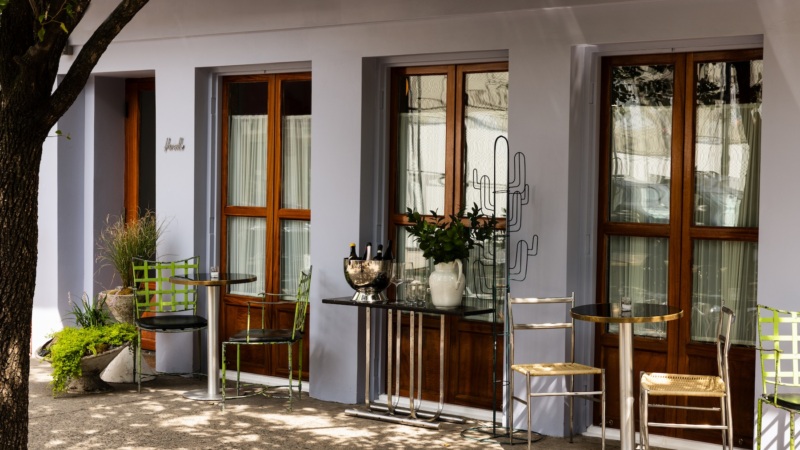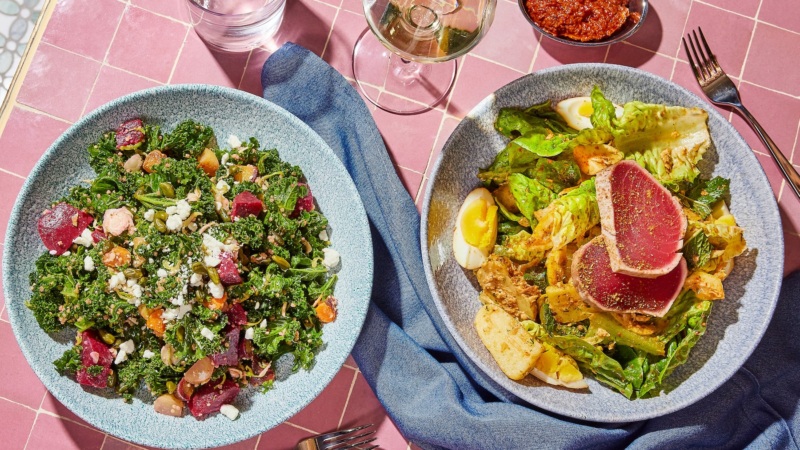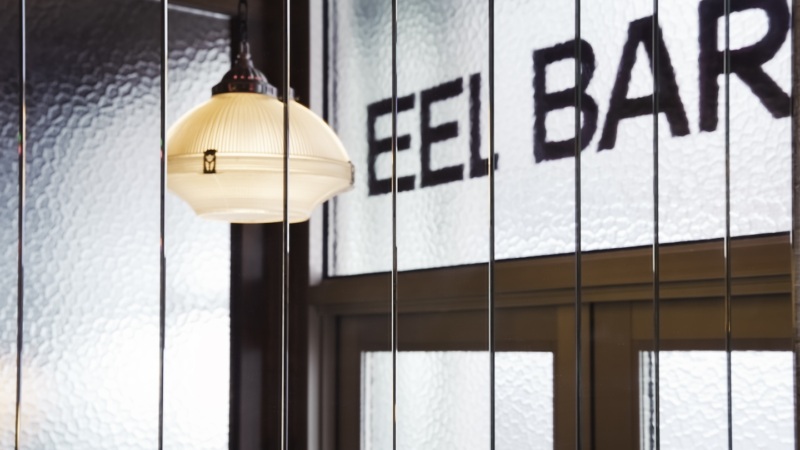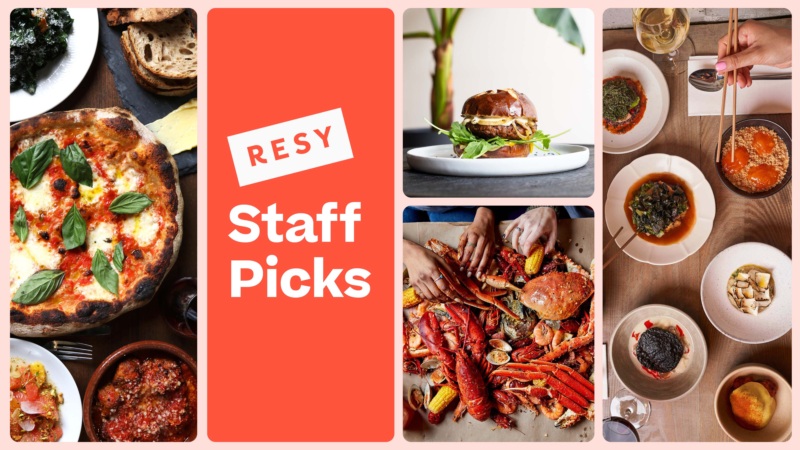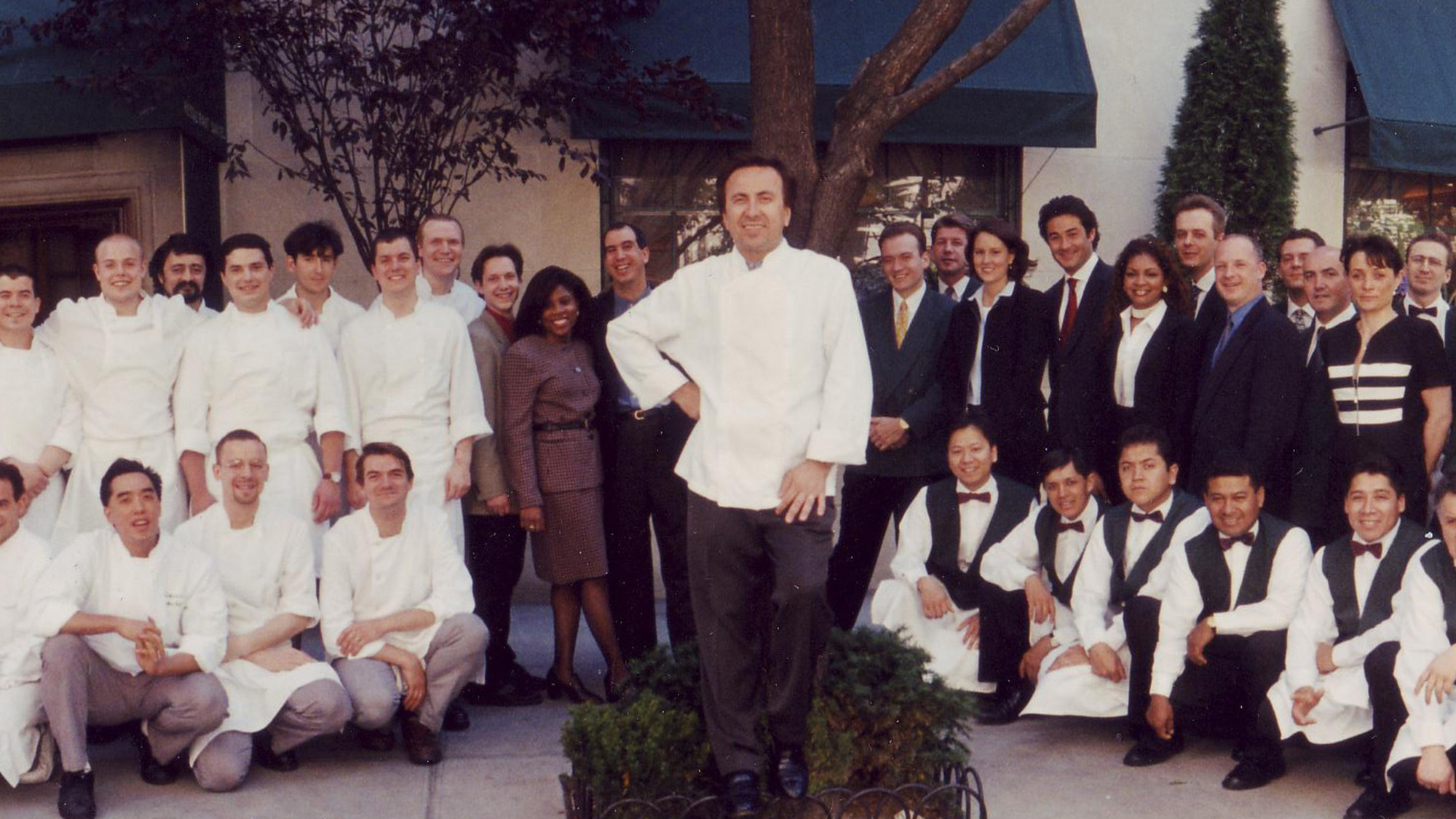
Daniel Boulud and the Art of Mentorship
Say you gather a group of chefs, each acclaimed in their own right, whose one thing in common is a significant amount of time spent in the kitchens of Daniel Boulud. Now, ask them what single dish they learned there they’d keep with them forever — what would they say?
EDDY LEROUX
Wow, definitely the black tie scallop,
that’s for sure.
ALEX LEE
The black tie was crazy.
It was sliced jumbo sea scallops with
fresh black truffle in between slices.
MELISSA RODRIGUEZ
When I was on the hot apps station,
I don’t remember how many we made
every night.
EDDY LEROUX
It’s still very much in fashion,
visually and taste-wise.
It’s a dish that can travel many,
many generations.
ALEX LEE
It’s incredibly beautiful.
It’d be wrapped in blanched spinach leaves,
then encased in puff pastry, and baked to order.
Nobody could do this cooking
these days anymore.
According to Boulud, the best gift any mentor could receive is to have one of their dishes live on after them. For Boulud, it’s a seafood soup he learned from his mentor, Roger Vergé, when he was just 19 years old. To his mentees, it’s the scallop black tie.
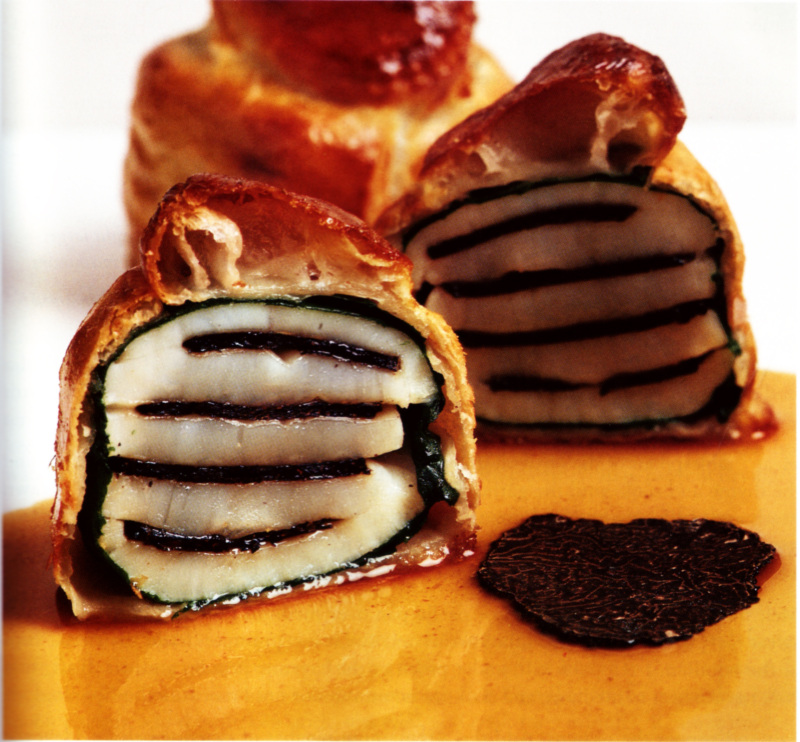

No one could’ve predicted the impact Boulud would have on the dining scene at large when he created that dish almost 40 years ago, as Le Cirque’s executive chef in 1986.
Today, the 68-year-old French chef originally from Lyon is a revered culinary authority with more than 20 restaurants, six James Beard Awards, and three Michelin stars to his name, known for his boundless energy, generosity, and charismatic air (if Boulud asks, “Ça va?” you say “Ça va” back*). His very first restaurant and flagship, Daniel, just celebrated its 30th anniversary this year in New York. (*Ça va = the French, catchall term for “All good?”)
And for the past 30 years, countless cooks from all over the world have walked through the doors of his kitchen to cut their teeth at one of the most well-regarded “schools” in the country. Not a literal culinary school, of course, but over the years and through word of mouth, from one Daniel alum to the next, Boulud has built a reputation for enabling true mentorship in his restaurants. The kind that’s life-changing and sticks with you throughout your career.
“Of course, in the restaurant, we pay people to do a job. But we want more than that. We want them to learn something, to acquire knowledge,” says Boulud. “It’s about transmission. It’s about supporting and helping the next generation.”
Daniel Boulud’s Mentors
ROGER VERGÉ
A founder of Nouvelle Cuisine who pioneered
a Provençal style of cuisine at his legendary
restaurant, le Moulin des Mougins.
MICHEL GUÉRARD
A founder of Nouvelle Cuisine known for his
cuisine naturaliste and three-Michelin-starred
restaurant, les Prés d’Eugénie.
GEORGES BLANC
A three-Michelin-starred chef and restaurateur,
and a global ambassador for French cuisine.
PAUL BOCUSE
A founder of Nouvelle Cuisine from Lyon, often
dubbed the “Pope of Gastronomy” and “Chef of the
Century,” who created one of the most prestigious
cooking competitions in the world: the Bocuse d’Or.
Daniel Boulud’s Mentees
ALEX LEE
The opening chef de cuisine, then executive chef,
at Daniel, where he worked with Boulud from
1993 to 2004.
AARON BLUDORN
Chef-owner of Bludorn and Navy Blue in Houston.
Worked at Café Boulud from 2009 to 2019, where he
started as a line cook and became executive chef.
MELISSA RODRIGUEZ
Two-Michelin-starred chef-owner of Al Coro and Mel’s
in New York. Worked at Daniel from 2006 to 2011
where she started as a line cook and left a sous chef.
EDDY LEROUX
The current executive chef at Daniel. Joined
in 2002 as an executive sous chef, and is going
21 years strong.
“Every mentor brought me something very personal.”
The cycle of mentorship for Boulud can be traced back to his very own beginnings in the kitchen when he trained under some of the most influential chefs in France.
As a young apprentice under Georges Blanc at his three-Michelin-starred restaurant, La Mère Blanc, Boulud learned about tradition and the importance of respecting it.
Paul Bocuse was a showman who took care of his community, which included everyone from his customers to his suppliers, and of course, his staff; he instilled in Boulud a deep sense of camaraderie in the kitchen and respect for one’s fellow chefs. “He had this power that he shared with his team, and it helped everyone benefit from it,” Boulud says.
Michel Guérard was a poet to Boulud, someone with a great sensibility that he and his wife Christine Barthélémy brought to life at their three-Michelin-starred restaurant, Les Prés d’Eugénie. “The way the artwork was on the wall, the lighting, the furniture, the flowers, the tabletop — their sense of detail was tremendous, and I kept a lot of that with me,” he says.
Finally, Roger Vergé was the embodiment of the south of France, whose legendary French Riviera restaurant, Le Moulin des Mougins, was a lesson in hospitality: Every night, dinner was a show, and every single person was invited to the party. “You could feel that energy in the front of the house, in the kitchen, in the customers,” Boulud recalls. “He was the life of the party at the Moulin de Mougins.”
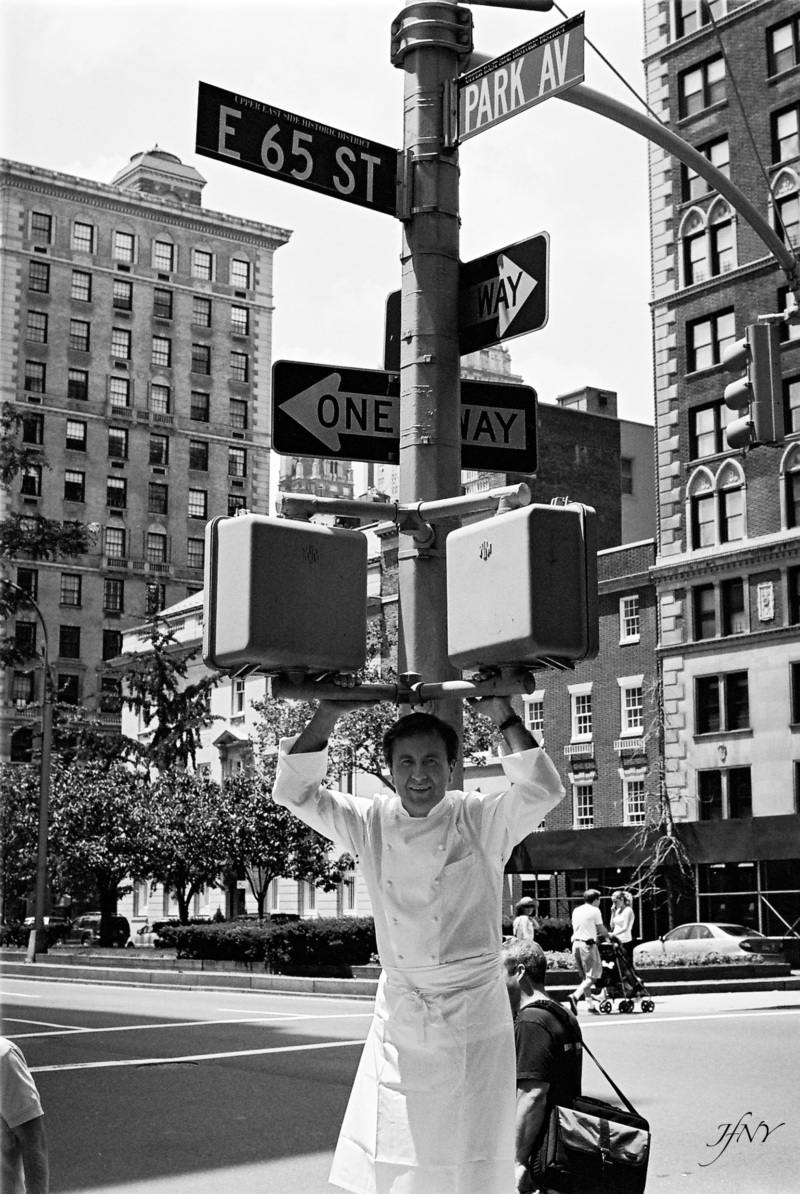

Boulud took all of these lessons with him when he came to the U.S. in 1981. But the student truly became the teacher in 1993 when he finally opened his own restaurant, Daniel, which would quickly become a fine-dining institution and training ground for a whole generation of cooks. And a place where his own nurturing of chefs and their careers could fully begin.
“Daniel has a wonderful pedigree. It was ‘lead by example.’ There was a lot of pride there,” says Alex Lee, Daniel’s opening chef de cuisine. “[There was] so much discipline there, lots of respect for your coworkers, your ingredients, your batterie de cuisine … Cooking is one of the toughest professions, but Daniel’s always had this incredible energy and passion that he passed down to a lot of chefs.”
It makes sense that Daniel…
Would draw cooks seeking the foundational training that is so intrinsically tied to such fine-dining French establishments. Boulud upheld a culture of excellence at his restaurants, and everyone knew it.
Melissa Rodriguez was intent on learning that “high-end repertoire” when she joined the flagship as a line cook in 2006, after working for Cornelius Gallagher at Oceana, a former Daniel sous chef himself. It was the same for Aaron Bludorn who, after one kitchen trail at Café Boulud, moved to New York from California in 2009, to become a line cook. But beyond learning the foundations of haute French cuisine, both were given the opportunity to grow as well.
“I worked really hard while I was there, but I always felt like I was part of a team,” says Rodriguez of her time at Daniel. “There was an incredible amount of camaraderie and mentorship that filtered throughout the kitchen, whether it be Jean-François Bruel who was the executive chef at the time, and Eddy Leroux, who was chef de cuisine.”
“He’s a really strong leader in the sense that he is always in his kitchens, pushing.” says Bludorn of Boulud. “The reason he is who he is is because he has helped so many young chefs get to the level he’s at.”
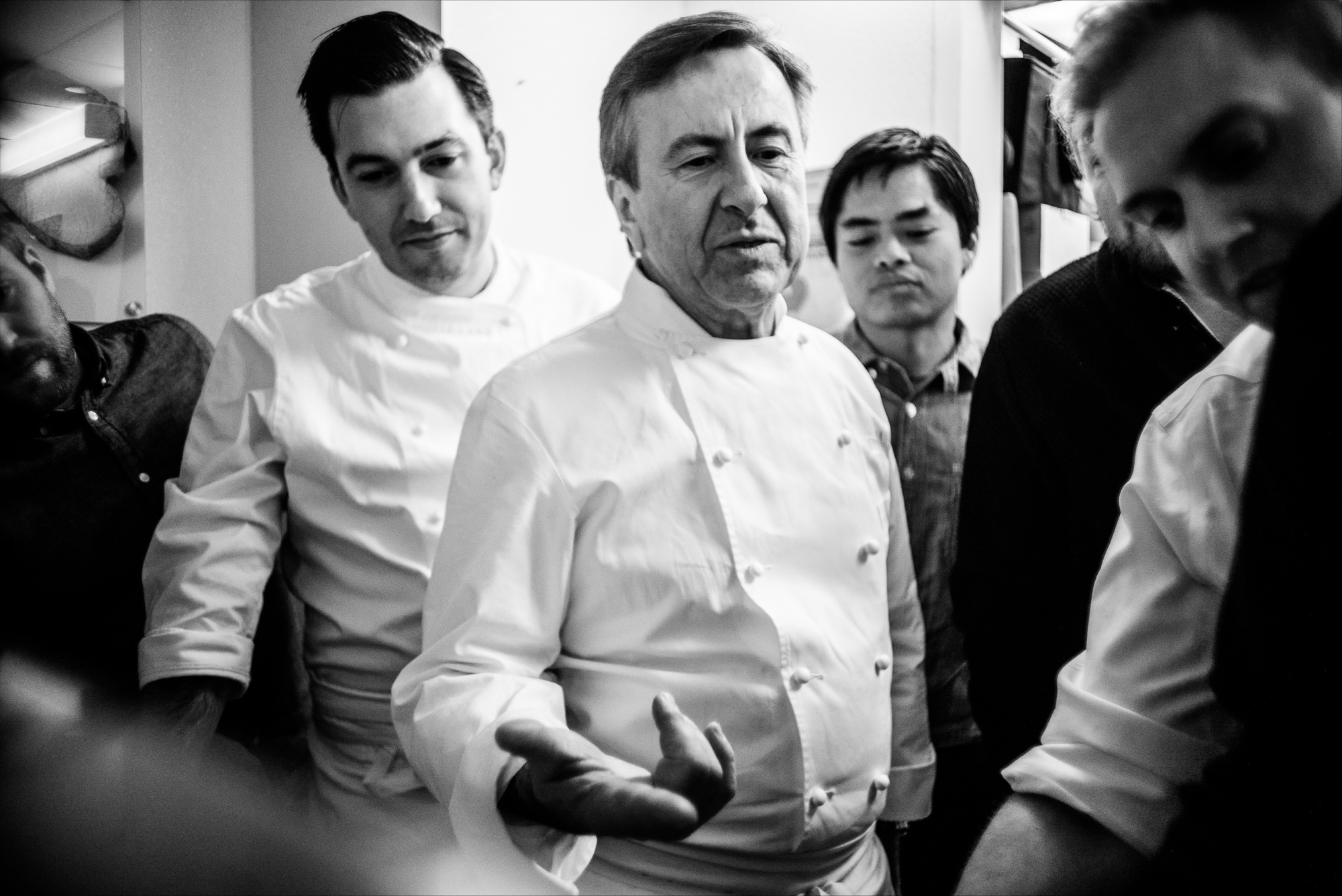
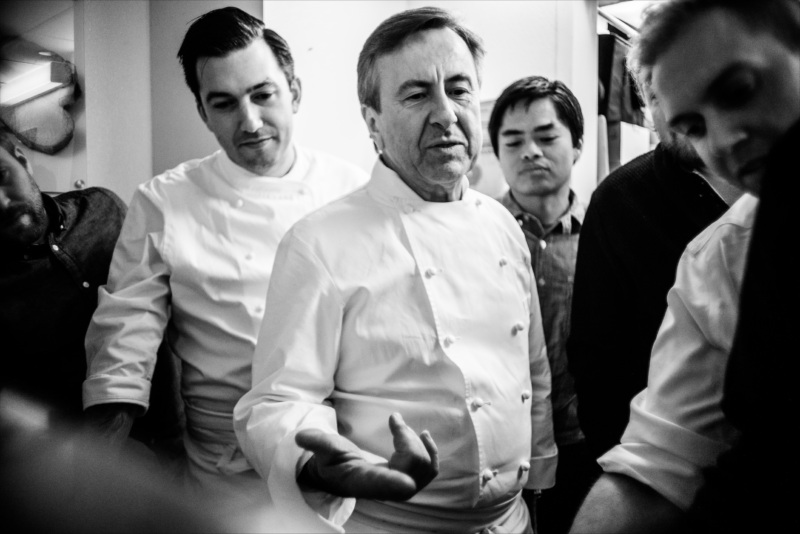
Rodriguez and Bludorn left Boulud’s kitchens after half a decade and a decade respectively, having been promoted over the course of their respective tenures to sous chef (the former) and executive chef (the latter).
And it was when Bludorn was promoted at Café Boulud that the cycle of mentorship came full circle for him.
“[Boulud] just constantly asked us about our cooks and what their goals were,” says Bludorn. “It was always so important for him to be in touch with everyone in his kitchens, what their goals were, and how we were working to not only achieve them for our restaurant, but also for each individual.”
Choosing a mentor is choosing a team, choosing a place, choosing a direction in your life that will shape your future.— Daniel Boulud
Both Boulud and current Daniel executive chef Eddy Leroux are quick to point out that this kind of growth takes time and does not happen overnight. It’s something that a younger generation of chefs seems to forget, Leroux says.
“We build a foundation for years and years and years before we grow and move to our responsibility and position,” Leroux iterates. “[You] can’t expect to reach the top without putting the hours or putting the time to grow.”
“Not everybody believes that mentorship is an investment in time,” Boulud concurs. “People have to understand that choosing a mentor is choosing a team, choosing a place, choosing a direction in your life that will shape your future. It takes time to become someone in that place. But during that time, you will build relationships with people that are as good as you, build relationships with the chef.”
“To me, the true art of mentorship is when the student spends enough time with their mentor, so they can really become a master or a successful mentor [themselves].”
And that is what sets Boulud apart:
If you’re willing to invest in him and his team, they will invest in you. The one characteristic that shines most when speaking to his chorus of mentees — other than his unfailing energy — is his undeniable generosity when it comes to his time. Him being present, him being there.
“The guy has the busiest schedule in the world, but he will make time for everyone,” says Lee. “He’ll help everyone towards success, and I think it’s a mark of a true mentor.”
The guy has the busiest schedule in the world, but he will make time for everyone.— Alex Lee on Daniel Boulud
Bludorn fondly remembers the “marathon conversations” Boulud would have at the start of every new season with each of his executive chefs — three-hour-long one-on-one talks where they’d go through upcoming menu changes together.
“Daniel would always [ask] you about any item or dish you were going to do, ‘What’s the story behind it? What’s the point of it? Why are we doing this?’ That extremely influenced my approach to how I write menus today,” says Bludorn.
“I know a lot of chefs out there who’ve graduated through the doors at Daniel,” says Lee. “My greatest joy is when they say how meaningful their tenure was at the restaurant, and how it helped form them into the culinary person they are today.”
Boulud still remembers…
The fisherman in the small boat who would deliver to Le Moulin des Mougins, Vergé’s restaurant. The fisherman would come at six o’clock in the morning with a bucket of live rockfish and small crabs that the team wouldn’t even clean, leaving them just the way they were. Boulud remembers putting the fish in a strainer, building the base of what would become soupe de poisson. He’d cook the fisherman’s catch in olive oil, adding the tomato, then the fennel.
“It was the best in the world,” Boulud recalls. “Something you could only have the privilege to do when the fisherman could catch the fish.”
A tribute to his mentor and that time lives on in the menu of Le Gratin, Boulud’s Lyonnaise restaurant in the Financial District. Look for the bouillabaisse, that traditional Provençal fish soup — the kitchen uses the exact same recipe Vergé taught a young Boulud way back then.
“It’s the best one I’ve learned and tasted, and I want to make sure that it’s passed along to others, to learn how to make and be able to carry on with it,” says Boulud. “To keep [it] forever.”
Remember that scallop black tie?
For Boulud, a legacy shouldn’t be something that’s material. Though he does hope that Daniel lives on after him, and continues to represent New York, him, and French cuisine for a very long time. There are his restaurants, his books, his accomplishments, but in Boulud’s eyes, it’s all about what’s truly come from all of these different paths and avenues.
“It’s being able to inspire and guide the generation to come.”
And it’s something his own mentees have taken to heart, too: Every chef interviewed for this story stressed the importance of mentorship (and perpetuating its cycle) in how they’ve led and lead in their kitchens today.
MELISSA RODRIGUEZ
I take mentorship really seriously
because I think it’s really important.
I treat my kitchen as a learning environment.
Everyone participates.
ALEX LEE
I try and teach people about the importance
of taking care of and nurturing people.
I like giving back because during my journey,
I’ve had so many people be great to me.
AARON BLUDORN
You have to constantly be training
the next generation in your kitchens.
Placing emphasis on hands-on
training is so important.
And that’s who [Boulud] is.
And that’s what I hope I am, you know?
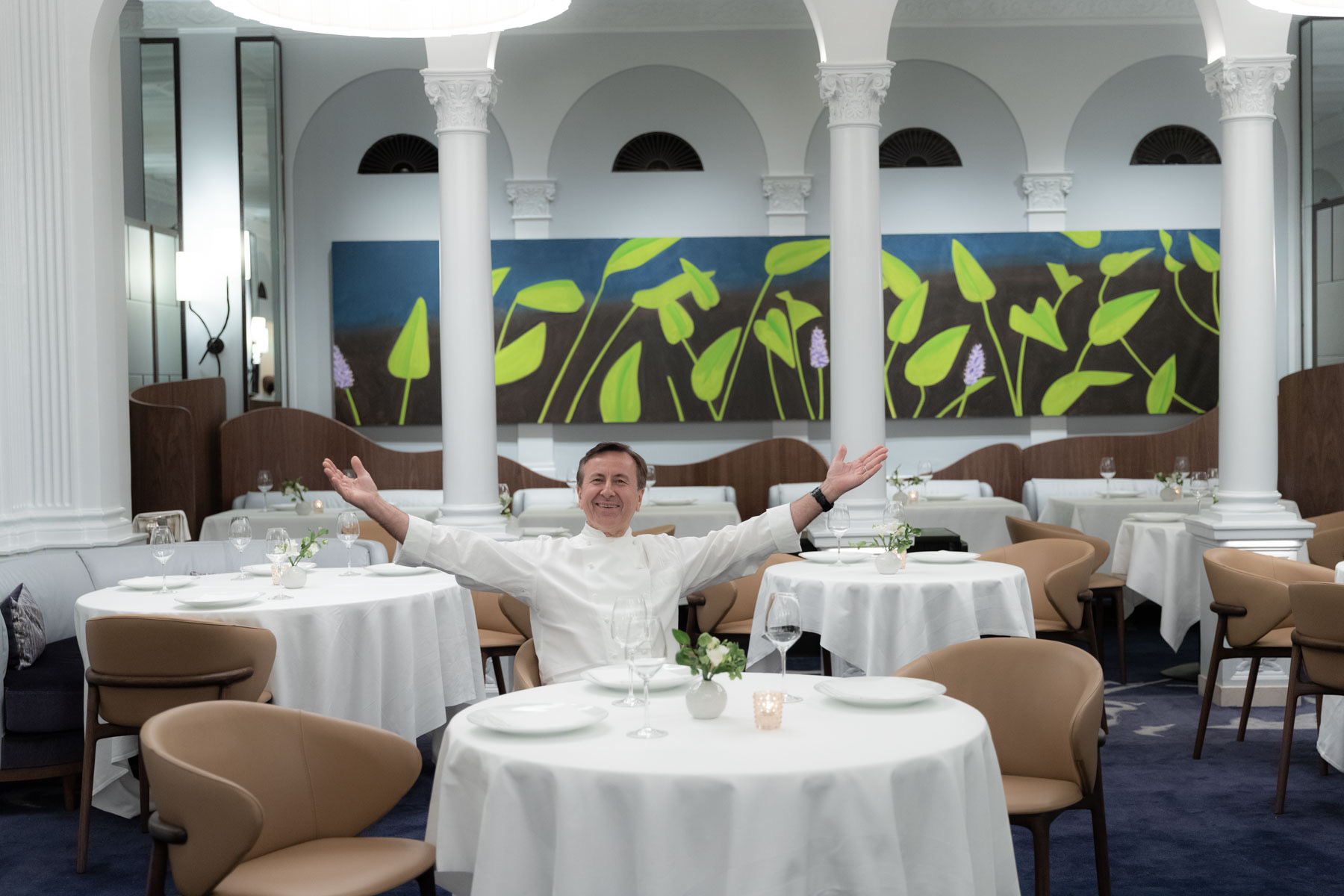
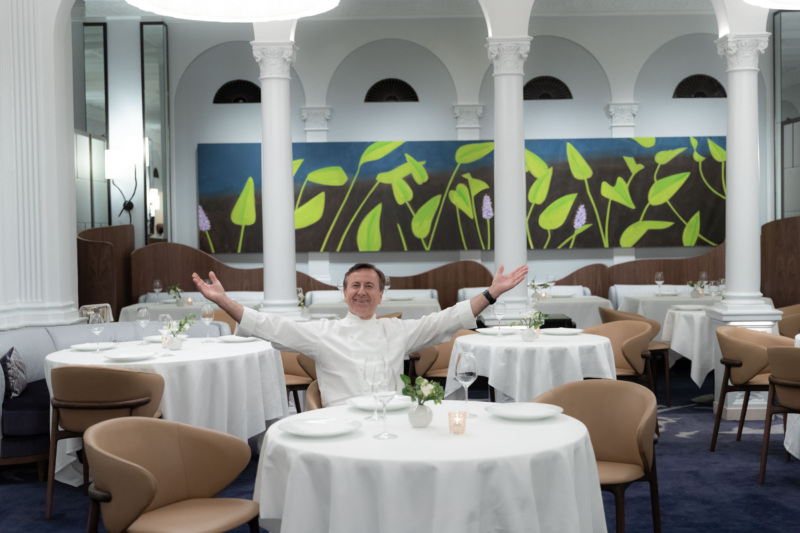
Discover More
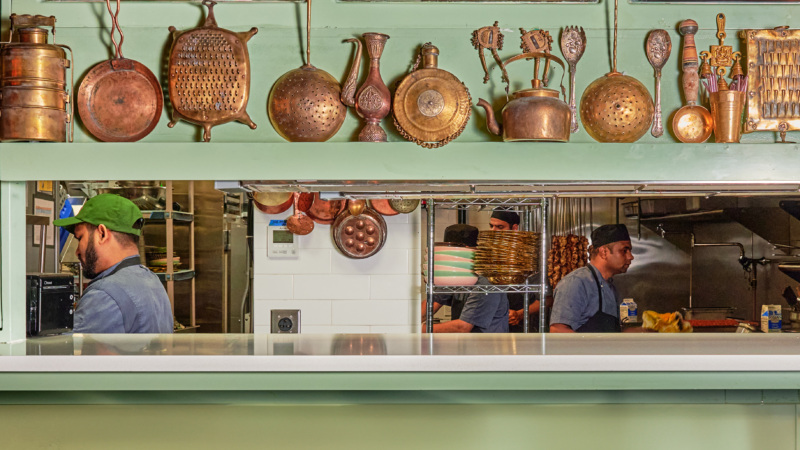
Stephen Satterfield's Corner Table







